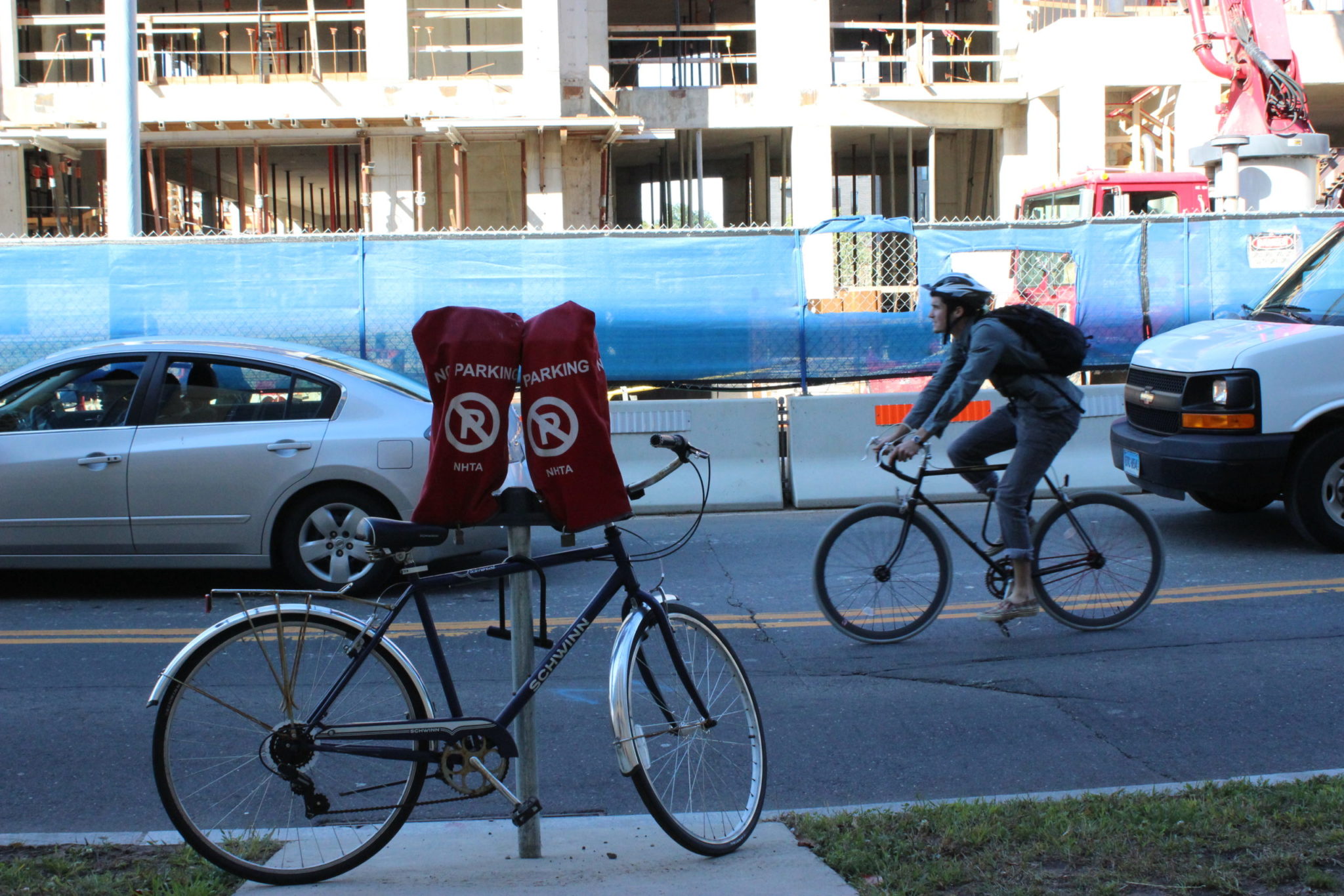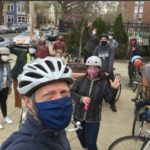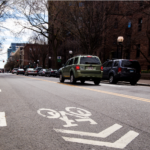New cycling infrastructure launched in New Haven
After many years of planning, the Edgewood Cycletrack is creeping closer to completion and the new Chapel Street bike lane finished construction, with the draft of the Safe Routes for All plan to be released at the end of this month.

Yale Daily News
This summer, two infrastructure projects set the stage for the future of cycling in New Haven.
In Downtown, a west-bound cycling lane was installed in June on the north side of Chapel Street, after approval from the city’s Traffic Authority. Soon after, a long envisioned protected bike path began construction in the Westville neighborhood.
“I think every opportunity we have to build out our bike network with the cycletrack or with the bike lane on Chapel Street is an opportunity to open up biking as a mode of getting around for more people,” Ward 1 Alder Eli Sabin ’22 said. “It’s good for the environment. It’s good for them. It’s more affordable.”
The Westville project, known as the Edgewood Avenue Cycletrack, was first proposed five years ago. Plans call for a 2.1-mile road-adjacent path that spans from Forest Road the Westville to Park Street in the Dwight neighborhood. The $1.2 million project cuts across 11 intersections, many of which will receive new bicycle-only traffic signals. It also includes funds for the construction of new sidewalks.
City Engineer Giovanni Zinn told the News that the first phase of construction is scheduled to wrap up in a month. Signal wiring is expected to be finalized by the spring. City officials and cycling activists alike have lauded the projects as a step forward in municipal efforts to improve conditions for cyclists, in a city where high rates of pedestrian-vehicle collisions have long attracted popular concern.
Last year, Sabin said he met with Doug Hausladen ’04, the then-director of transportation, traffic and parking for the city, to see where new lanes could be added in Ward 1. In May, Sabin submitted a request for a bike lane on Chapel Street to the Traffic Authority, who approved the request. The New Haven Transportation, Traffic and Parking Department installed the bike lane in early June.
Kai Addae, an activist involved in the Safe Streets Coalition, an organization that advocates for safer and more accessible transportation infrastructure in the Elm City, sees these projects as the most forward thinking plan in New Haven in a while. Yet, she believes there is a long way to go before cyclists and cars have equal accessibility in getting around the city. Addae said she was originally drawn to advocacy after a series of pedestrian and biker deaths in 2019.
Addae, an avid cyclist who works at the Bradley Street Bicycle Co-op, told the News she has experienced several “close calls,” where she has almost been struck by a moving vehicle. Many of her friends, she said, have been hit by cars. Over 200 New Haven cyclists and pedestrians were hit or killed in car accidents from 2015 to 2020 , according to data compiled by the UConn CT Crash Depository.
Bradley Street Bicycle Co-Op owner John Martin said he hopes the Edgewood Cycletrack will connect people across the city, especially those commuting to work.
“I wouldn’t be surprised if a lot of people from Westville drive to City Hall to work, drive to Yale to work or drive to the big buildings.” Martin said. “Turning [those who traditionally drive] into bikers, that’d be incredible.”
The Edgewood Cycletrack faced numerous delays due to lack of contractors. As first reported by The New Haven Independent, no contractors responded to the city’s initial contract advertisement when it was released in June 2019. Zinn told the News that the complexities required in signaling infrastructure may have deterred potential contractors. The initial contract also included both the civil construction and signal infrastructure under one contract. Finding a contractor who would do both parts of the job was hard, Zinn said. The city received more interest in the project after it was split into two different contracts.
Additional investments in safety could come soon
The added bike lane and Edgewood Cycletrack are part of a larger effort by New Haven to increase pedestrian and bike safety.
At the end of this month, the draft of a study on New Haven’s current infrastructure called the ‘Safe Routes for All’ program will be released to the public. Consultants from New Jersey have studied New Haven’s current infrastructure to identify “pain points” where sidewalks or bike lanes need updates.
Rob Rocke, who serves as a board member for the New Haven bike advocacy group Elm City Cycling, is involved in the Safe Streets Coalition. He said it is important for cycling advocates and city officials to follow through on whatever issues or recommendations surface in the report.
“You don’t want to have this thing created, have this pretty report get put in a binder, go on a shelf, never to be taken out again. It needs robust funding from the city,” he said.
Addae told the News she hopes more residents will join advocates to pressure the city to act on the issue of bike infrastructure.
“It’s up to all of us as residents to tell our Alders and to tell the mayor what we care about. Because that’s what they respond to,” Addae said. “If we care about traveling safely, if we care about sustainable transportation, then we have to speak up and I think it will happen.”
The draft of the Safe Routes for All plan will be released during two virtual community meetings on Sept. 28 and Sept. 30 and at one in-person meeting on Sept. 29 at 6 p.m. in Scantlebury Park.










